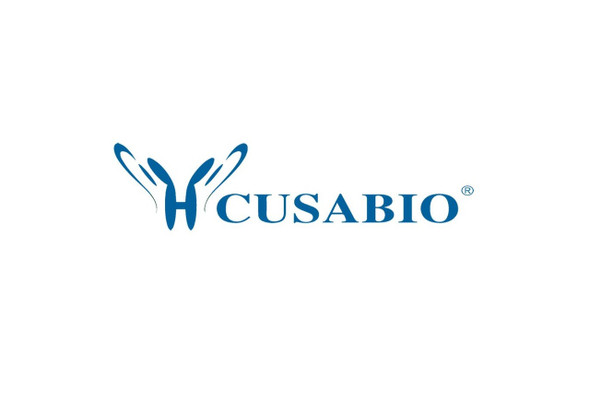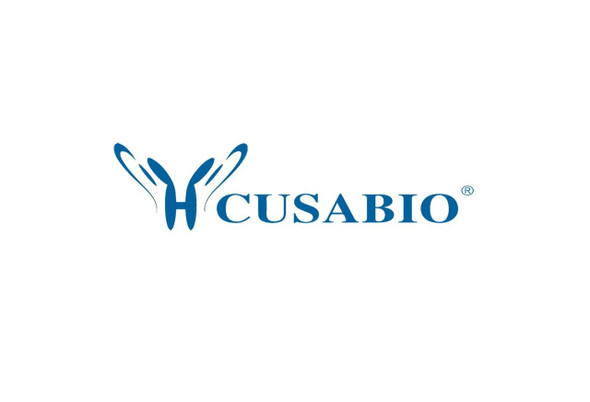Cusabio Human Recombinants
Recombinant Human Protein phosphatase 1B (PPM1B) | CSB-EP018490HU
- SKU:
- CSB-EP018490HU
- Availability:
- 13 - 23 Working Days
Description
Recombinant Human Protein phosphatase 1B (PPM1B) | CSB-EP018490HU | Cusabio
Alternative Name(s): Protein phosphatase 2;C isoform beta ;PP2;C-beta
Gene Names: PPM1B
Research Areas: Signal Transduction
Organism: Homo sapiens (Human)
AA Sequence: SIVLVCFSNAPKVSDEAVKKDSELDKHLESRVEEIMEKSGEEGMPDLAHVMRILSAENIPNLPPGGGLAGKRNVIEAVYSRLNPHRESDGASDEAEESGSQGKLVEALRQMRINHRGNYRQLLEEMLTSYRLAKVEGEESPAEPAATATSSNSDAGNPVTMQESHTESESGLAELDSSNEDAGTKMSGEKI
Source: E.coli
Tag Info: N-terminal 6xHis-SUMO-tagged
Expression Region: 2-192aa
Sequence Info: Full Length of Isoform Beta-X
MW: 36.6 kDa
Purity: Greater than 90% as determined by SDS-PAGE.
Relevance: Enzyme with a broad specificity. Dephosphorylates CDK2 and CDK6 in vitro. Dephosphorylates PRKAA1 and PRKAA2. Inhibits TBK1-mediated antiviral signaling by dephosphorylating it at 'Ser-172'. Plays an important role in the termination of TNF-alpha-mediated NF-kappa-B activation through dephosphorylating and inactivating IKBKB/IKKB.
Reference: Generation and annotation of the DNA sequences of human chromosomes 2 and 4.Hillier L.W., Graves T.A., Fulton R.S., Fulton L.A., Pepin K.H., Minx P., Wagner-McPherson C., Layman D., Wylie K., Sekhon M., Becker M.C., Fewell G.A., Delehaunty K.D., Miner T.L., Nash W.E., Kremitzki C., Oddy L., Du H. , Sun H., Bradshaw-Cordum H., Ali J., Carter J., Cordes M., Harris A., Isak A., van Brunt A., Nguyen C., Du F., Courtney L., Kalicki J., Ozersky P., Abbott S., Armstrong J., Belter E.A., Caruso L., Cedroni M., Cotton M., Davidson T., Desai A., Elliott G., Erb T., Fronick C., Gaige T., Haakenson W., Haglund K., Holmes A., Harkins R., Kim K., Kruchowski S.S., Strong C.M., Grewal N., Goyea E., Hou S., Levy A., Martinka S., Mead K., McLellan M.D., Meyer R., Randall-Maher J., Tomlinson C., Dauphin-Kohlberg S., Kozlowicz-Reilly A., Shah N., Swearengen-Shahid S., Snider J., Strong J.T., Thompson J., Yoakum M., Leonard S., Pearman C., Trani L., Radionenko M., Waligorski J.E., Wang C., Rock S.M., Tin-Wollam A.-M., Maupin R., Latreille P., Wendl M.C., Yang S.-P., Pohl C., Wallis J.W., Spieth J., Bieri T.A., Berkowicz N., Nelson J.O., Osborne J., Ding L., Meyer R., Sabo A., Shotland Y., Sinha P., Wohldmann P.E., Cook L.L., Hickenbotham M.T., Eldred J., Williams D., Jones T.A., She X., Ciccarelli F.D., Izaurralde E., Taylor J., Schmutz J., Myers R.M., Cox D.R., Huang X., McPherson J.D., Mardis E.R., Clifton S.W., Warren W.C., Chinwalla A.T., Eddy S.R., Marra M.A., Ovcharenko I., Furey T.S., Miller W., Eichler E.E., Bork P., Suyama M., Torrents D., Waterston R.H., Wilson R.K.Nature 434:724-731(2005)
Storage: The shelf life is related to many factors, storage state, buffer ingredients, storage temperature and the stability of the protein itself. Generally, the shelf life of liquid form is 6 months at -20?/-80?. The shelf life of lyophilized form is 12 months at -20?/-80?.
Notes: Repeated freezing and thawing is not recommended. Store working aliquots at 4? for up to one week.
Function: Enzyme with a broad specificity. Dephosphorylates CDK2 and CDK6 in vitro. Dephosphorylates PRKAA1 and PRKAA2. Inhibits TBK1-mediated antiviral signaling by dephosphorylating it at 'Ser-172'. Plays an important role in the termination of TNF-alpha-mediated NF-kappa-B activation through dephosphorylating and inactivating IKBKB/IKKB.
Involvement in disease:
Subcellular Location: Cytoplasm, cytosol, Membrane, Lipid-anchor
Protein Families: PP2C family
Tissue Specificity: Highly expressed in heart and skeletal muscle.
Paythway: MAPKsignalingpathway
Form: Liquid or Lyophilized powder
Buffer: If the delivery form is liquid, the default storage buffer is Tris/PBS-based buffer, 5%-50% glycerol. If the delivery form is lyophilized powder, the buffer before lyophilization is Tris/PBS-based buffer, 6% Trehalose, pH 8.0.
Reconstitution: We recommend that this vial be briefly centrifuged prior to opening to bring the contents to the bottom. Please reconstitute protein in deionized sterile water to a concentration of 0.1-1.0 mg/mL.We recommend to add 5-50% of glycerol (final concentration) and aliquot for long-term storage at -20?/-80?. Our default final concentration of glycerol is 50%. Customers could use it as reference.
Uniprot ID: O75688
HGNC Database Link: HGNC
UniGene Database Link: UniGene
KEGG Database Link: KEGG
STRING Database Link: STRING
OMIM Database Link: OMIM









